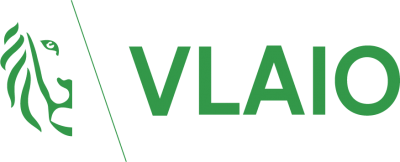Topics
We organise our actions in six thematic & strategic agendas:
Strategic Agendas:
Bio-economy
Circular Construction
Chemicals/Plastics
Manufacturing Industry
Food Chain
Water Cycles
Seven leverages provide additional support:
Leverage effects:
Lever Policy Instruments
Lever Circular Procurement
Lever Communication
Lever Innovation & Entrepreneurship
Lever Financing
Lever Jobs & Skills
Lever Research
What, why and how?
Why are we pursuing a circular economy?
Future visions 2050
How do we see our circular future?
About our management
Who steers what at Flanders Circular?
Lazarus Project
Hospital bedding made of lyocell and recycled polyester fibres
The Lazarus project aimed to establish a new local textile value chain "bed linen" for hospitals by replacing the traditional sheets made from environmentally unfriendly cotton, sometimes with a proportion of virgin polyester, with a new sustainable textile sheet made from lyocell (possibly with a proportion of recycled cotton) and recycled polyester fibre (R-PET, polyester fibres made from PET bottles).
By using European raw materials and recyclates on the one hand and direct cooperation between local companies and users on the other, we have created a "short" value chain. This reduces logistics costs, both during the production and the use phase. And we make the local textile industry competitive again for simple textile products.
A preliminary study decided on the choice of yarn, after which we extensively tested the sheets produced.
For the local production of 1 sheet, at least 4 recycled 1.5-litre coke bottles and 150g of cellulose from prunings are used. By replacing cotton and virgin polyester with environmentally friendly cellulose (lyocell) and PET recyclates, at least 75 g of pesticide chemicals, 50 l of water and 0.15 l of oil can be saved per sheet during the production phase. By increasing the proportion of recycled PET in a hospital sheet, water and energy consumption during washing and drying can be significantly reduced.
This project is circular by:
- using recycled materials and environmentally friendly biomass locally
- Avoiding intercontinental transport
- Using environmentally friendly washing and drying processes
- the circular maintenance of "reusable" bed linen
We use raw materials in a circular way, we organise different, more efficient logistics and improve the preconditions that make the circular economy possible.
Centexbel
Partners Utexbel, Malysse, UZ Leuven
Sectors
Themes
Organisations
Website
MOST IMPORTANT
RESULTS
- The LCA (Life Cycle Analysis) has shown that the sheet made of recycled polyester and Lyocell is significantly more durable than a comparable sheet made of 100% cotton or cotton mixed with virgin polyester.
- The TCO (Total Cost of Ownership) is positively influenced for the same purchase price because in the laundry there is both an ecological and economic profit since the R-PET/Lyocell sheets absorb less moisture and therefore probably also use fewer chemicals.
MOST IMPORTANT
LESSONS LEARNED
- By using recycled raw materials and more sustainable European raw materials, textiles can be made considerably more sustainable and partially circular. This with an equal quality level and probably the same life span.
- The construction of textiles can ensure that textile products have a longer life. For example, we noticed a difference between ring-spun and open-end spun yarn.
WHAT DOES
THE FUTURE HOLD?
We are at the beginning of a turning point that is an opportunity for the local textile industry, textile owners and large textile buyers (public tenders). Negotiations are ongoing to make this bedding permanent at the UZ Leuven.
















